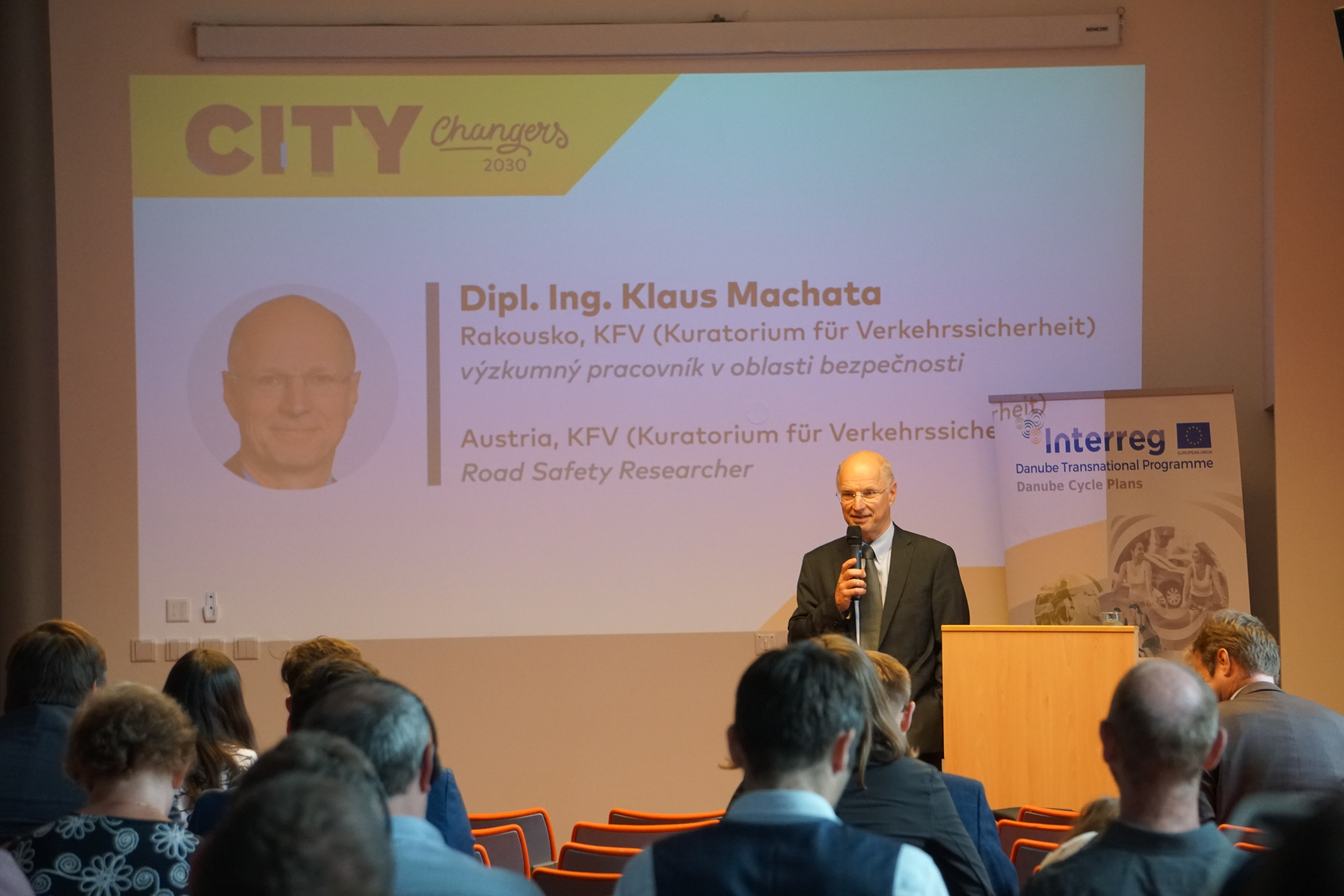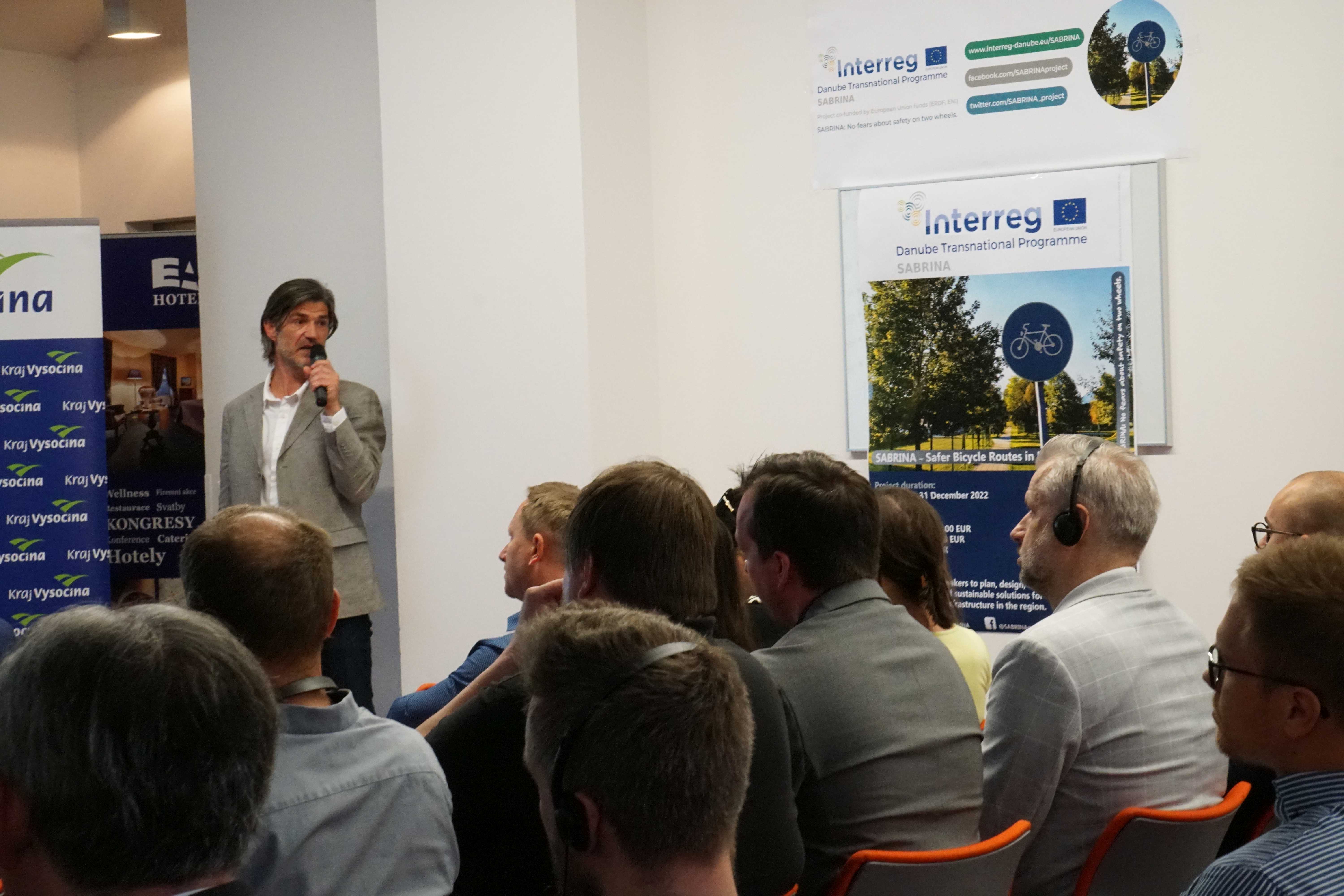SABRINA - SABRINA PROJECT AT CZECH NATIONAL CYCLING CONFERENCE
29-06-2022
The number of cars is increasing dramatically, with a 35% increase over the last 10 years alone. But even more dramatic is the increase in people choosing the bicycle for travel. More than a hundred experts came to the CityChangers 2030 conference, which took place in the Czech city of Jihlava on 17-18 May 2022, to try to find a recipe for dense traffic. The conference was a gathering of all those working for transport improvements, including the promotion of active mobility. This event was organized by the Partnership for Urban Mobility and the city of Jihlava as part of two projects from the Danube Transnational Programme – SABRINA and Danube Cycle Plans.
The event was held exactly one year after the Czech Republic joined the international commitment of the Vienna Declaration, which was endorsed by 41 countries, incl. the Czech Republic, on 18 May 2021, and which includes the Pan-European Masterplan for Cycling Promotion (PEMP), the first-ever strategic document on cycling officially adopted at the international level. The document which will become a fundamental guide for the development of non-motorised transport across Europe was developed under the umbrella of the Pan-European Programme for Transport, Health and Environment (THE PEP) as a joint initiative of the United Nations Economic Commission for Europe (UNECE) and the World Health Organisation (WHO).
"The first pan-European Master Plan for Cycling Promotion is a key achievement for promoting active mobility – cycling and walking – not only in cities but also on national and European level,“ said Robert Thaler from the Austrian Ministry of Climate Action, Environment, Energy, Mobility, Innovation and Technology who is also Vice Chairman of THE PEP (Transport Health Environment Pan European Programme). The Transport Health Environment Pan European Programme THE PEP and its Vienna Ministerial Declaration „Building forward better by transforming to new, clean, safe, healthy and inclusive mobility and transport“ are the basis for the Danube Cycle Plans project.
The conference was attended by around 130 participants, with hundreds more following the event online. Amongst them were the representatives of the key stakeholders such as municipalities, regions, and of course ministries. "Cycling and walking play an indispensable role in sustainable urban and suburban mobility. I want to pay even more attention to this active mobility because it will play an increasingly important role, especially in cities. Reducing distances in transport must be worked for," said Transport Minister of the Czech Republic Martin Kupka who also spoke at the conference.
The conference was attended as well by the representatives of partner organizations that are involved in two European projects Danube Cycle Plans and SABRINA, including for example Gregor Steklačič, Slovenian national cycling coordinator from the Ministry of Infrastructure, Klaus Machata, Road Safety Expert from KFV Austria who presented the SABRINA project, our goals and activities to the conference participants.
The event was held as the National Cycling Conference of the Czech Republic. "If we create conditions for walking or cycling everywhere, the necessary serviceability by all modes of transport will increase significantly,“ said Jaroslav Martinek, Managing Director of the Partnership for Urban Mobility association. This is the basic idea of the Urban and Active Mobility Concept 2021-2030 which was approved by the Czech government in January 2021. How to put this methodological material into practice was also one of the key topics of the conference.
The conference languages were Czech and English, with simultaneous interpretations. The videos of the conference is available on these links:
English: Day 1, Day 2,
Czech: Day 1, Day 2.
More information about the conference is available on the official webpage. Here you can find all the presentations, a detailed programme and a list of the speakers.


Photos: Jana Vybiralova
![]()



